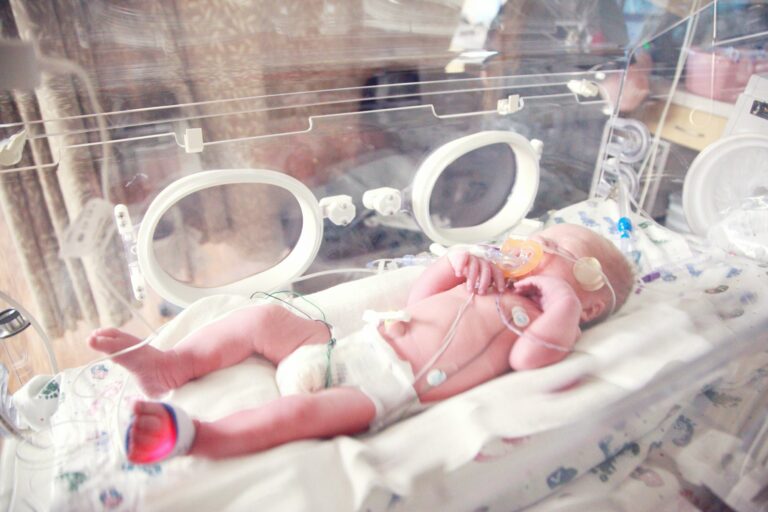Preparing for IVF often feels like strapping into an emotional roller coaster, anticipation brimming with every twist, hope intensified by each turn. Parents navigating this journey may find themselves examining every detail, asking: How can I brace for news I dread and yet so desperately hope to avoid? The question—how to prepare for an IVF failure—echoes with anxiety and uncertainty. Couples, individuals, all searching for clarity amid overwhelming information. What steps will soften disappointment? How can expectations align with reality and, most importantly, how does one protect emotional well-being without losing sight of hope?
You might be grappling with questions about what happens if IVF isn’t immediately successful, or how to talk about your experience with your partner, friends, or medical team. Concerns about the next cycle, financial impact, or physical and mental strain often loom. With all these threads to untangle, finding practical, supportive answers on how to prepare for an IVF failure feels essential. Let’s explore scientific facts, empathetic strategies, and concrete tools to equip you for each phase of this unique path.
Understanding IVF Failure: Not Just a Clinical Outcome
The phrase “IVF failure” may invoke a sense of finality, but medically, it simply describes the absence of a viable pregnancy after an IVF cycle—entirely independent of the effort or hope you invested. This can mean implantation failure (when the embryo doesn’t attach), experiencing a biochemical pregnancy (a fleeting rise in hCG that fades before ultrasound confirmation), or confronting an early miscarriage (loss before 12 weeks), each carrying distinct emotional and physiological implications.
Scientific literature highlights a multitude of potential causes: poor embryo quality, hormonal imbalances, sperm morphology anomalies, uterine lining receptivity, even the subtleties of lab conditions. Age—especially maternal—plays a determinative role, affecting oocyte quality and hormonal response. Recognizing this biological complexity provides a dose of reality, yet doesn’t erase the emotional punch when a cycle doesn’t go as planned.
Have you found yourself tracking every symptom, analyzing each sensation? It’s natural—the brain strives for patterns, for cause and effect. Medical professionals underscore the importance of separating statistical probability from personal outcome: even the most “optimized” protocol doesn’t offer certainty. How to prepare for an IVF failure means learning to engage with probabilities, not promises.
Emotional Impact: The Invisible Weight
The Female Perspective
Beneath the medical protocols lies a nuanced emotional landscape. For women, how to prepare for an IVF failure stretches beyond planning; it’s about navigating the collision between hope and biology. Self-identity often becomes entwined with the process—feelings of isolation, suddenly acute during a friend’s pregnancy announcement, or the monthly grief echoing with each cycle.
Hormonal treatments themselves can be destabilizing, altering weight or mood, sometimes magnifying body image concerns. Clinical appointments compound vulnerability; clothing replaced by sterile gowns, intimate questions posed by strangers. These experiences test resilience, and yet, your reaction—sadness, anger, numbness—remains understandable, even expected.
The Male Perspective
And men? The emotional response may be silent, but seldom absent. Guilt, frustration, a drive to “fix” what feels out of control. For some, withdrawal masquerades as stoicism. For others, the burden of seeing their partner endure repeated procedures without being able to intervene generates a unique, often unspoken weight. Societal expectations around fatherhood and masculinity further complicate the mix. Relationship dynamics change as these emotional wavelengths rarely synchronize—her sadness can fuel his retreat, his silence deepen her sense of aloneness.
Addressing these subtleties is not optional—for many, it is the only way forward. How to prepare for an IVF failure means acknowledging pain as legitimate and distinctly human.
Resetting Expectations: IVF as Iterative, Not Absolute
Reframing the IVF Experience
IVF isn’t a single event, but a process marked by adaptation. Age, diagnosis, endometrial thickness, hormonal milieu, sperm DNA fragmentation—variables abound, each shaping outcomes as much as the procedure itself. Candid engagement with your medical team allows for individualized risk assessment, using cohorts and cumulative live birth statistics for more precise, evidence-based predictions.
Is it reasonable to hope for success from the first cycle? Certainly. Is it smart to mentally partition room for setbacks? Absolutely. Forewarned is forearmed: sometimes, pregnancy follows one round, but often, two, three—or more—are required. By viewing each cycle as a step rather than an endpoint, you lay a foundation for resilience. How to prepare for an IVF failure means equipping your mindset for possibility rather than promising an outcome.
Forecasting Multiple Attempts
What if one cycle isn’t enough? Medical teams routinely discuss protocols for repeated attempts, with the possibility of tweaking medication dosage, adjusting stimulation strategies, or investigating uterine receptivity with advanced diagnostics like endometrial receptivity arrays or immunological panels. Proactive planning, both medically and emotionally, can make a world of difference.
Navigating the Waiting Game and Psychological Stress
Facing the Pause: The Science of Waiting
The time between embryo transfer and pregnancy test—often called the “two-week wait”—can feel interminable. Anxiety spikes, cortisol levels rise, and the brain enters hypervigilance. Coping strategies rooted in neuroscience recommend mindfulness, gentle exercise (like yoga), or sensory-based activities (acupuncture, massage) to disrupt stress pathways.
Is distraction helpful? For many, yes—but beware the temptation to overfill your schedule. Genuine rest, even boredom, gives the body a chance to reset stress hormones. Deep breathing, progressive muscle relaxation, and guided meditation activate the parasympathetic nervous system (the body’s natural calming mechanism).
Accepting Uncertainty
Stress—contrary to popular belief—isn’t the enemy. Fighting it only multiplies its effects. Psychologists describe the “second arrow” phenomenon: stress about being stressed simply amplifies suffering. Instead, acceptance and self-compassion become protective shields. How to prepare for an IVF failure means understanding that doubt and anxiety are uncontrollable, but your response need not be punitive.
Communication and Seeking Support
Silence isolates, but articulate support connects. Couples benefit from structured check-ins: a set time to share thoughts, unfiltered by solutions or advice. Peer support groups (onsite or virtual), dedicated fertility counselors, or honest conversations with a trusted friend can diffuse isolation. Some clinics offer counseling as a regular part of assisted reproduction—don’t hesitate to request it.
After an Unsuccessful Cycle: Emergent Steps
Allowing Emotional Recovery
Hope can sting when it collapses. Healing begins by validating disappointment—mourning is a psychological necessity, not a sign of weakness. “Failure” is an emotionally charged term; many clinics advocate for “unsuccessful attempt” to shift the narrative. Each IVF cycle generates a wealth of new data (hormonal responses, embryo development metrics) for your team, not a verdict on your worth or effort.
Debrief and Adjust with Medical Experts
Debriefing with your reproductive endocrinologist or fertility nurse allows for a granular review:
- Were stimulation protocols optimal?
- Did the laboratory environment pose any challenges?
- Would adjunctive therapies (e.g., endometrial scratching, PGT-A genetic screening) offer new possibilities?
Your how to prepare for an IVF failure plan should include these key discussions, granting you control over modifiable factors while recognizing natural limitations.
Restoring Body and Spirit between Cycles
Short breaks between attempts aren’t just permissible—they’re encouraged. Physically, the ovaries and uterus require time to recover from stimulation and retrieval. Emotionally, intervals allow for restorative self-care, rekindling hope and recalibrating expectations.
Financial, Logistical, and Lifestyle Factors
Budgeting and Time Management
IVF demands energy, time, and significant resources. Transparency around costs, insurance coverage, and clinic repayment plans allows better decision-making. Planning for time off work (with flexible arrangements if needed), arranging transportation, and organizing home support all matter when building a buffer for uncertainty.
Assembling a Support System
Relationships, both close and extended, may serve as a safety net. But how much to share? Some parents choose disclosure with only a select few; others prefer wider openness. Support groups—especially online communities—offer collective wisdom and specific advice on how to prepare for an IVF failure, from medical possibilities to emotional regulation.
Everyday Strategies for Emotional Balance
- Self-compassion: The notion of treating oneself with the same kindness as a friend is more than feel-good advice; studies show it modulates stress hormones and encourages adaptive coping.
- Micro-goals: Setting and meeting small goals outside the fertility context—a ten-minute walk, a favorite book—restores agency and emotional versatility.
- Creative expression: Journaling, painting, or even baking act as conduits for emotion.
- Active grieving: Allowing sadness, mingled with moments of hope, to coexist. The grieving process is non-linear—days will ebb and flow.
Exploring Alternatives When Needed
Repeated unsuccessful cycles might prompt consideration of next steps: donor gametes (eggs or sperm), embryo donation, surrogacy, adoption, or—sometimes—lifestyle interventions focused on optimizing reproductive health. Reducing alcohol consumption, quitting smoking, and prioritizing sleep quality all emerge as scientifically backed recommendations for both partners.
Each path carries ethical questions, logistical hurdles, and emotional reckonings. Discussions with specialists, as well as thorough information gathering, can illuminate possibilities you may not have previously considered.
Key Takeaways
- Mastering how to prepare for an IVF failure means embracing medical facts, recognizing emotional currents, and welcoming adaptability at every turn.
- Both mothers and fathers (or partners) may carry invisible burdens—communicate, validate, and support each other.
- Evidence-based planning and open dialogue with your fertility team set a firm foundation; more than one attempt is usually necessary.
- Stress and doubt are common responses, but acceptance, self-compassion, and guided support ease the path.
- Consider each cycle a step forward in knowledge, not a reflection of inadequacy.
- Leverage your social network, take pauses to rebuild, and practice deliberate self-care alongside medical strategies.
- Broadening options—donor conception, surrogacy, lifestyle changes—guarantees that your pathway remains uniquely yours.
- Professionals stand ready to provide individualized advice, whether medical, emotional, or logistical.
Need extra guidance? Download the Heloa app for tailored advice and free health questionnaires designed for parents—empower your family journey with evidence and empathy, each step of the way.
Questions Parents Ask
What should I discuss with my doctor after an IVF failure?
Don’t hesitate to schedule a meeting with your fertility doctor after an unsuccessful IVF cycle. Together, take time to review each step: ask about possible reasons, whether adjustments to medications might be helpful, or if new tests could clarify the next steps. It’s completely normal to want to understand what happened. Your medical team is there to answer your questions, explain options for future cycles, and guide you toward personalized solutions with respect and empathy.
How can I look after my emotional health following IVF failure?
Experiencing disappointment is absolutely normal, and taking care of emotional well-being matters just as much as the physical side. Seeking out counseling, joining support groups, or simply sharing with trusted friends can help lighten the emotional load. Gentle routines—like mindful breathing, walks, or creative hobbies—can bring moments of calm and hope. Give yourself permission to feel and express your emotions. Each person processes these events in their own way—there’s no “right” reaction, and no need to feel alone in your journey.
Are there lifestyle changes that can support future IVF attempts?
Giving your body and mind the best environment is a positive step for any future fertility journey. Focus on balanced nutrition, regular gentle exercise, and finding restful sleep. Limiting caffeine, alcohol, and exposure to tobacco is always a good idea. Consider adding relaxation practices, like yoga or meditation, to manage everyday stress. Remember, taking small, consistent actions can be empowering and supports your whole well-being, whatever the outcome.









